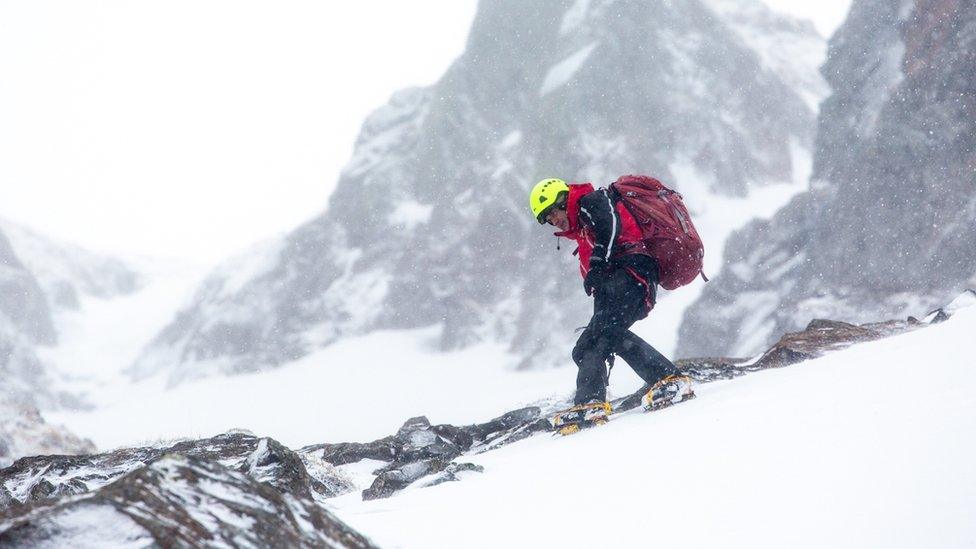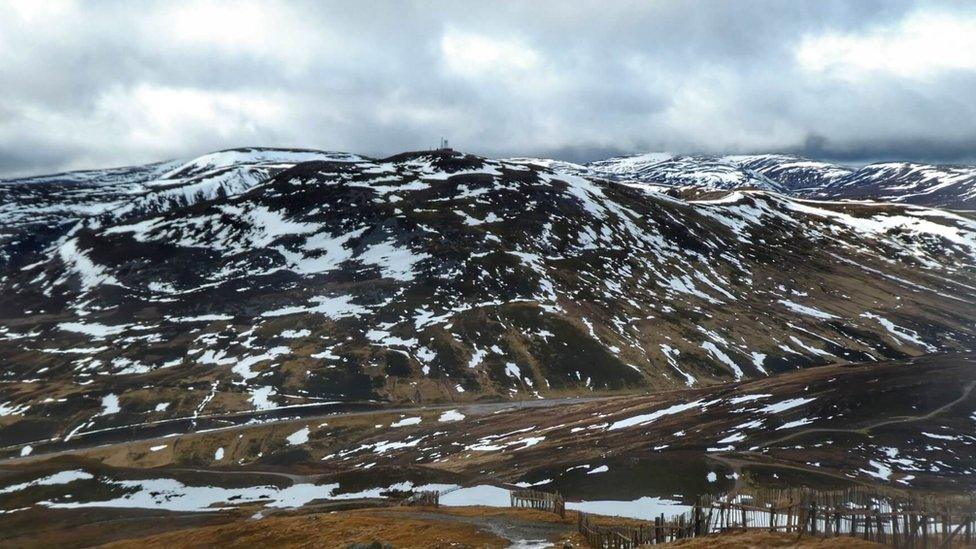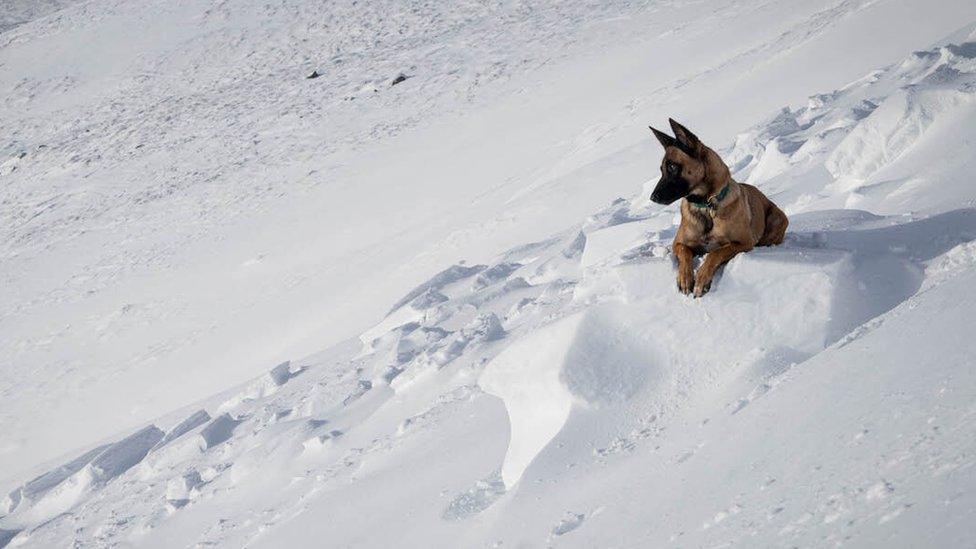Lack of snow cover blamed for mountain accidents
- Published

Visitors to the hills have been urged to prepare for winter conditions high in Scotland's hills and mountains
A lack of snow cover on Scotland's hills and mountains has been a likely cause of serious accidents in recent weeks, Police Scotland has warned.
It said the hills were not holding the amounts of snow they typically would do at this time of year.
Police said this may be giving hillwalkers a false sense of security and they were not adequately equipped for conditions higher up.
Mountaineering Scotland has also raised concerns about the risk.
Police Scotland urged visitors to the hills to make sure they were adequately kitted out for winter weather and conditions, including crampons and an ice axe.
The force said significant patches of snow and ice still covered the hills, but added that these patches were not necessarily visible from the starting points of walks or climbs.
Insp Matt Smith said: "It's still winter, despite what it may look like further down. I'd urge anyone setting out to plan for all eventualities."
Mountaineering Scotland's Ross Cadie said the current milder temperatures on the mountains had resulted in large patches of firm snow lying mainly on steep sides, gullies and across paths.
The senior mountain safety advisor said: "Some walkers are getting caught out by stepping on to the snow patches without being prepared.
"It's imperative that you have the correct winter equipment, including stiff boots, crampons, and an ice axe, and that you understand the consequences if a fall were to occur."

The Scottish Avalanche Information Service has encountered patchy snow cover in the Southern Cairngorms
Mr Cadie added: "With such poor climbing conditions, climbers are being concentrated into the gullies, resulting in more people being in the fall line of any dropped equipment or dislodged rocks, which can be extremely dangerous to those below.
"Climbers should think very carefully before climbing routes that already have others established on them, as well as avoid areas known to have loose rock."
Last month, avalanche forecasters said they were seeing the likely effects of climate change high in Scotland's mountains.
The Scottish Avalanche Information Service said conditions were changing more rapidly and avalanches occurring in a condensed time period.
It said named storms - such as 2021's Storm Barra - brought short, significant periods of "proper winter", raising the avalanche risk.
The storms have often been followed by rising temperatures and snow loss.
But SAIS warned that even in those "leaner" times when there was less snow, potential hazards remained, often higher up towards the top of a coire, gully or mountain summit.
- Published27 January 2023
